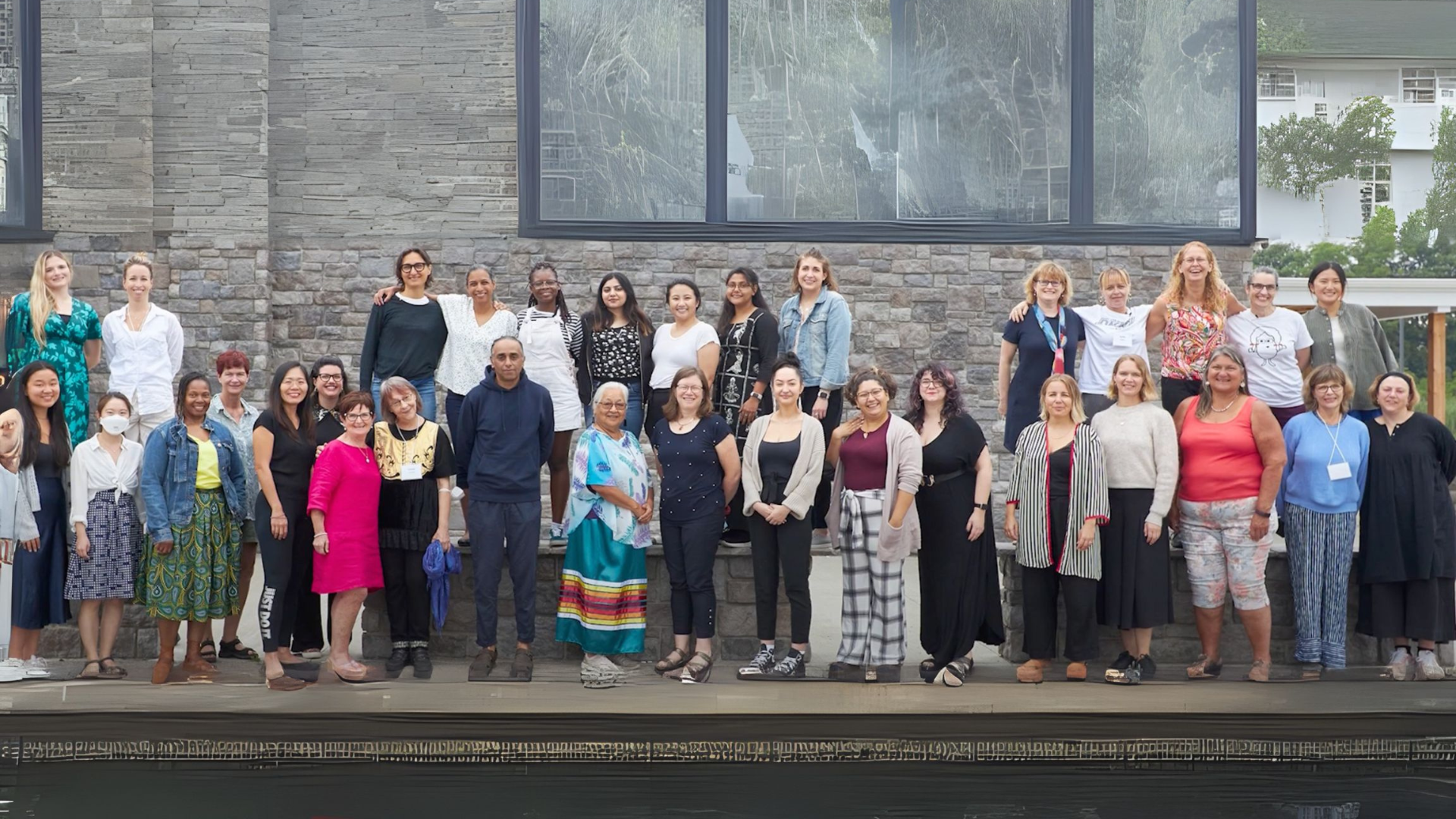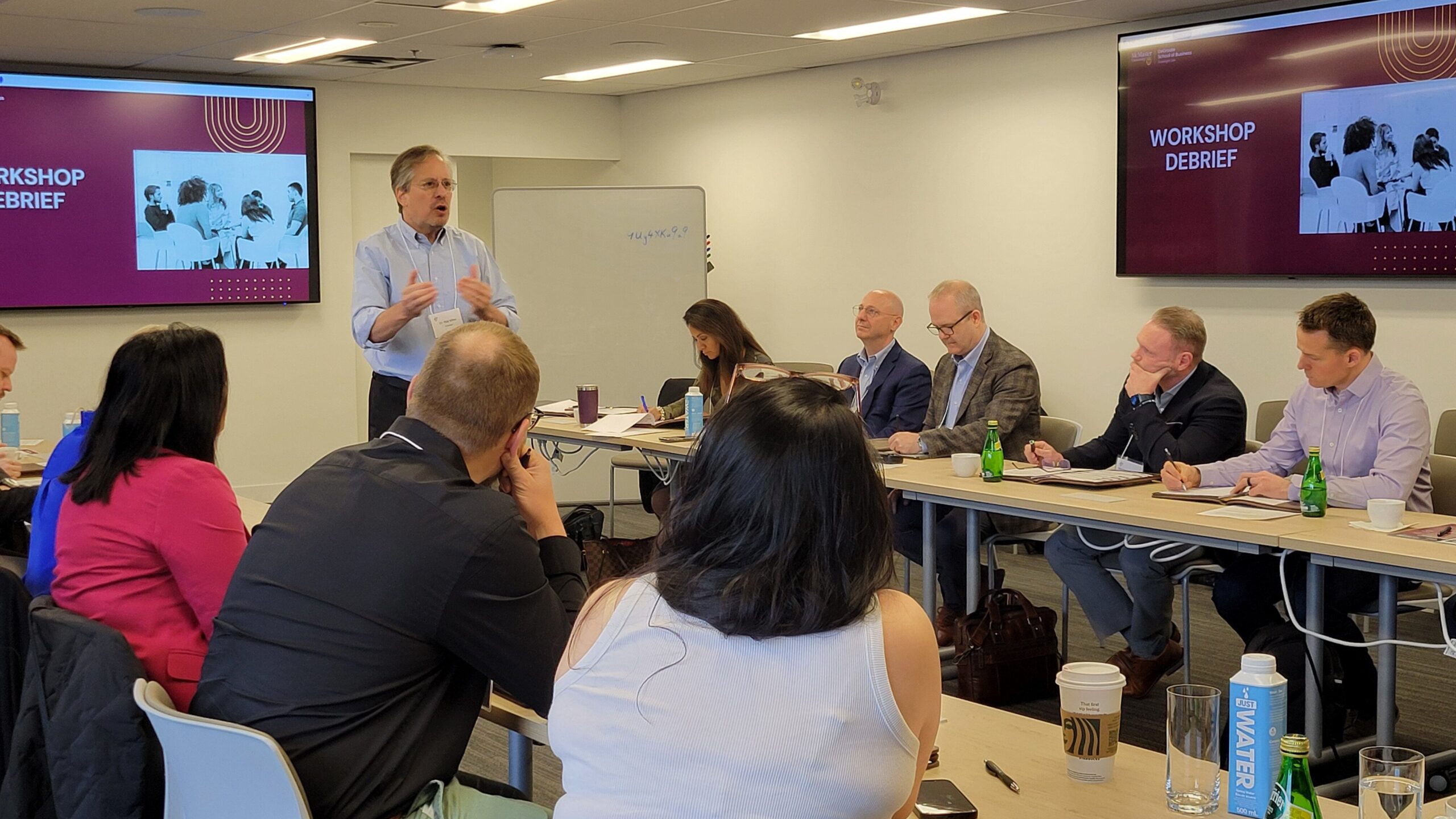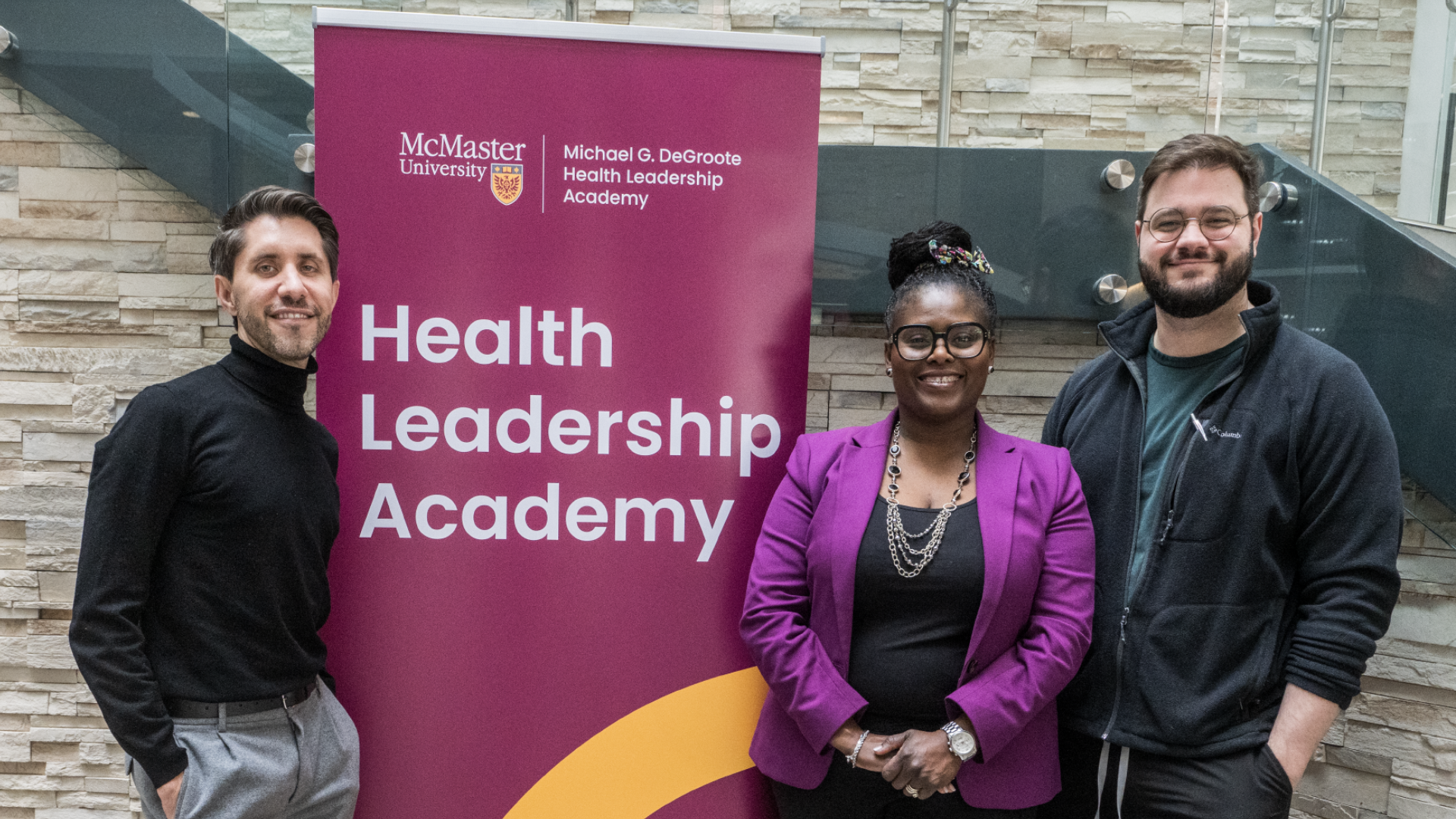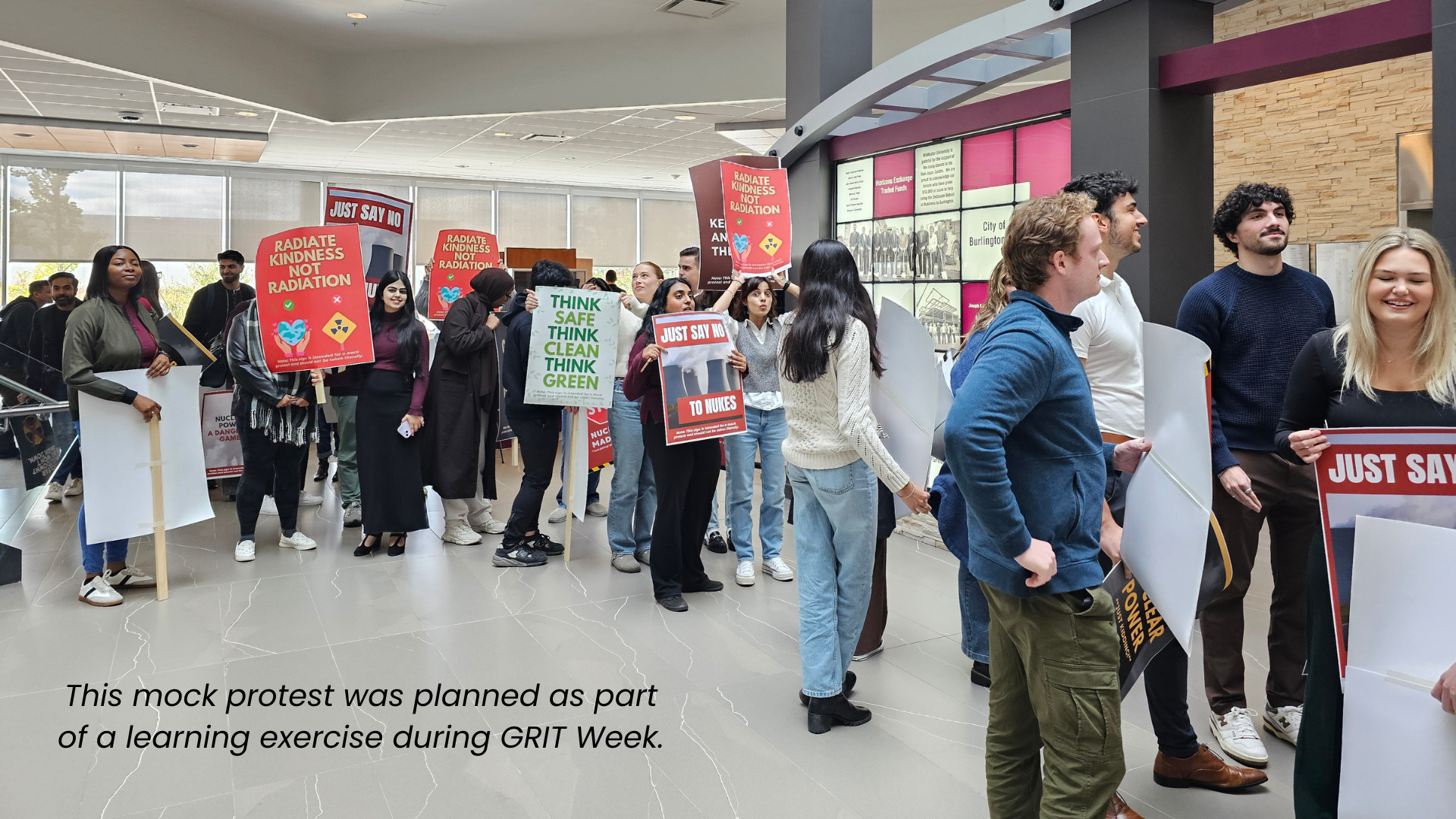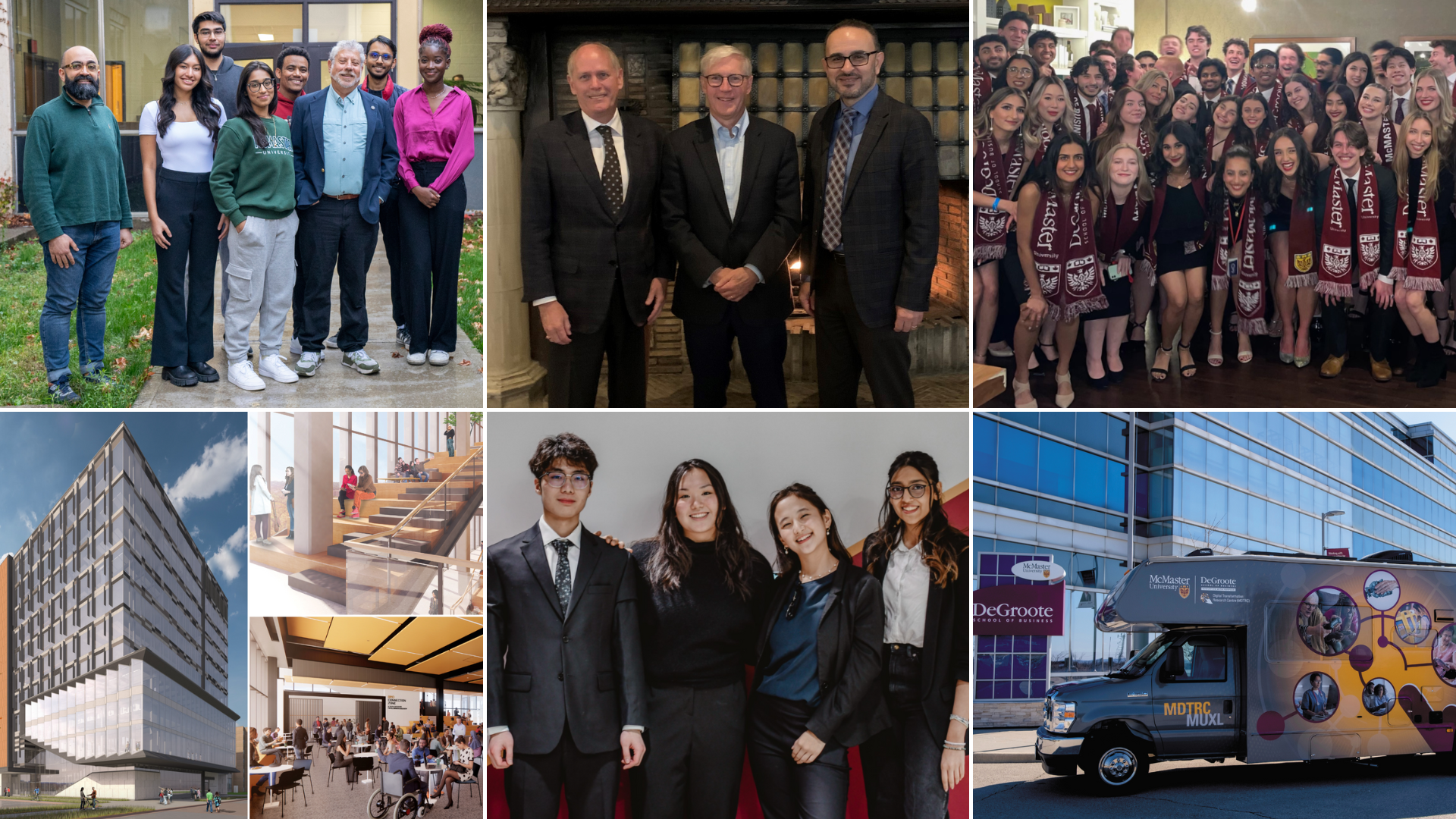HUMAN RESOURCES AND MANAGEMENT STAFF STRATEGIC MANAGEMENT STRATEGIC PLAN | TEACHING AND LEARNING
Soft Skills: The Foundation For The Future Of Work
August 2, 2023 ·
Contributed by: Izabela Shubair, DeGroote Contributor

As disruptive technologies continue to transform the nature of work, they are also changing the skills needed to stay current in the workplace of today and tomorrow. A recent report by Goldman Sachs estimates that artificial intelligence (AI) could impact nearly 300 million jobs globally. In some cases, it will automate up to 45 per cent of required tasks. While this reality confirms that tech know-how will be a necessity, two professors who teach as part of DeGroote’s Executive Education program say it is soft skills that will lead to success and advancement in the future of work.
“Of course, tech skills, digital literacy, and analysis will be essential, but it’s easier to train people in such task-oriented matters,” says Haniyeh Yousofpour, an expert in human resources management, change management, and conflict resolution. “Soft skills are important in relation to success, but they are also harder to train for. How do we distinguish ourselves as a person? Having the judgement ability to make good decisions and bringing your true self to work is more important than ever. That will be the differentiator to succeed.”
The Soft Skills of the Future
Candice Chow is an assistant professor of Strategic Management at the DeGroote School of Business. She says that the soft skills of the future include: values and principles; futures literacy (understanding how the future influences what you do and see in the here and now); systems thinking (seeing the bigger picture); independent thinking, emotional intelligence; and adaptability. These capabilities, she says, cut across all careers and sectors and feed into each other.
“With the tide pushing us towards utility, these soft skills are crucial,” she says. “We want to build a society that is humancentric and treats humans with dignity. Yes, utility is important but the world lives in a balance. I see all of the skills of the future as being interconnected and reinforcing each other. If you are honing one, you are honing the others.”
To her list, Yousofpour also adds problem-solving, critical thinking, resilience, adaptability, and negotiation abilities. She anticipates that, increasingly, the ability to effectively interact with others and lead organizations through changes will play a role in succeeding in the future of work.
“Mastering technology is one thing, but in the future of work you need to be able to collaborate, be an innovative thinker, and have social intelligence,” she says.
The Role of Leadership
Both Chow and Yousofpour say one of the greatest assets in the future of work will be leadership capabilities. It’s a capacity that will be imperative for everyone in the workplace — not just those in management positions. Leadership will also not just focus on the ability to effectively lead others, but firstly leading yourself.
“Leadership has three levels,” explains Yousofpour. “It is leading yourself, leading people, and organizational leadership. It’s actually not about managing others. It’s about the ability to influence and inspire. This is where critical thinking and the ability to be insightful and communicate with clarity and being agile comes in.”
Adds Chow, “When it comes to developing leadership skills, self-reflection is crucial. It’s why I encourage my students to build their capacity to be introspective. It allows you to critically reflect on what your lived experiences can teach you about certain situations. Experiential learning, for example, is a great way to develop leadership skills because it engages you in efforts that force you to work with others, which then provides an opportunity for reflection.”
Why Lifelong Learning Matters
In an everchanging work landscape, continuous upskilling will also be a way to get ahead. Because lifelong learning helps people to expand their views and become more confident in their abilities, Chow says employers should be playing an active role in encouraging employees to engage in formal and informal educational opportunities.
“As a professor, I truly care about my students and I don’t want them to just have good marks, I want them to actually develop and grow,” she says. “The same should be done for employees by helping them to embrace a learning mindset in a quickly-evolving world where they’ll need to think more broadly. The future is so uncertain and lifelong learning is the only way to keep pace.”



